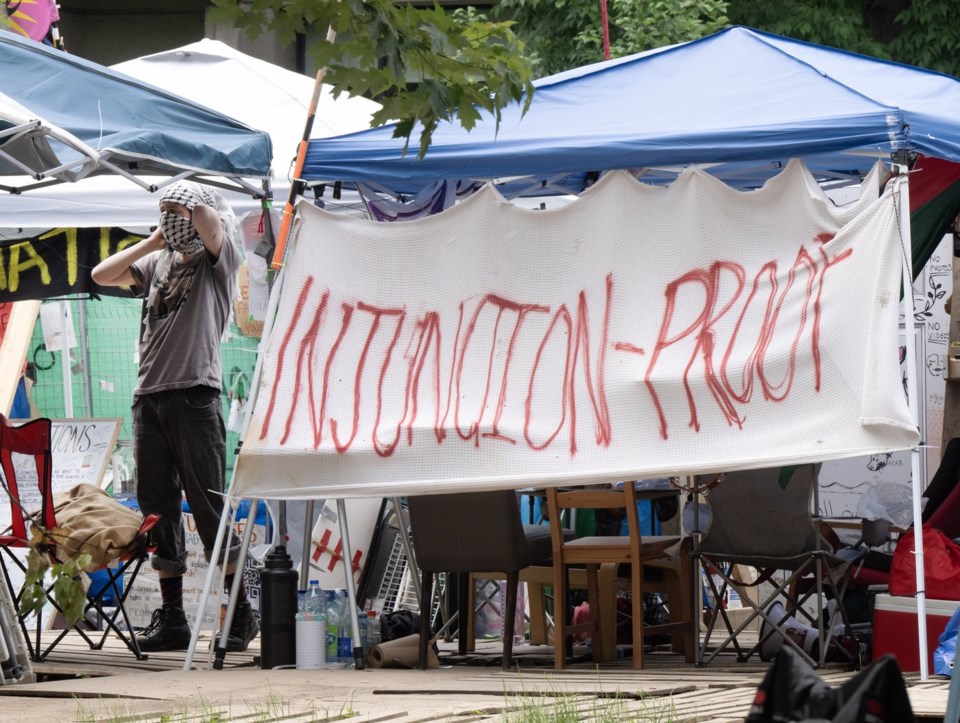MONTREAL — McGill University withdrew its injunction request against a pro-Palestinian encampment on Thursday, a little more than two weeks after the school dismantled the collection of tents from its downtown Montreal campus.
In a brief statement, the university said it withdrew its request because it was "no longer necessary due to the dismantling of the camp on July 10." On that date, McGill hired a private security firm to remove the encampment that had been on the school's lower field since late April.
Protesters had fenced off an area and put up tents on April 27, following a wave of similar campus protests in the United States linked to the Israel-Hamas war. They demanded that McGill divest from companies they said were “complicit” in Israel’s occupation of the Palestinian territories, and cut ties with Israeli institutions.
In mid-May, the university failed to secure an emergency court order to have police clear protesters, with a Quebec Superior Court judge finding that the school did not prove the situation at the encampment was sufficiently urgent to justify the measure.
That case was making its way through the courts to be heard on its merits and all parties were due at the Montreal courthouse on Thursday for a hearing, but none of the lawyers showed. Later, lawyers for McGill and for some of the protest groups confirmed the university had dropped the injunction request.
Separately, a pair of McGill students in May also attempted to have the encampment removed, because they said it had made them feel unsafe. While a judge found that the protesters were illegally occupying the campus, he did not order them removed.
McGill then elected to go the private security route. “The owner of a property has every right to request individuals who are occupying its property without authorization to leave,” the university said in a statement as the dismantling operation unfolded.
Deep Saini, McGill president, had called the encampment “a heavily fortified focal point for intimidation and violence, organized largely by individuals who are not part of our university community.”
In an update Thursday, the university said it was readying to reopen its downtown campus, access to which has been largely restricted since the camp was removed. Restrictions are to further ease next week, and the plan is to return to an open campus by the time fall orientation begins.
This report by The Canadian Press was first published July 25, 2024.
Sidhartha Banerjee, The Canadian Press



